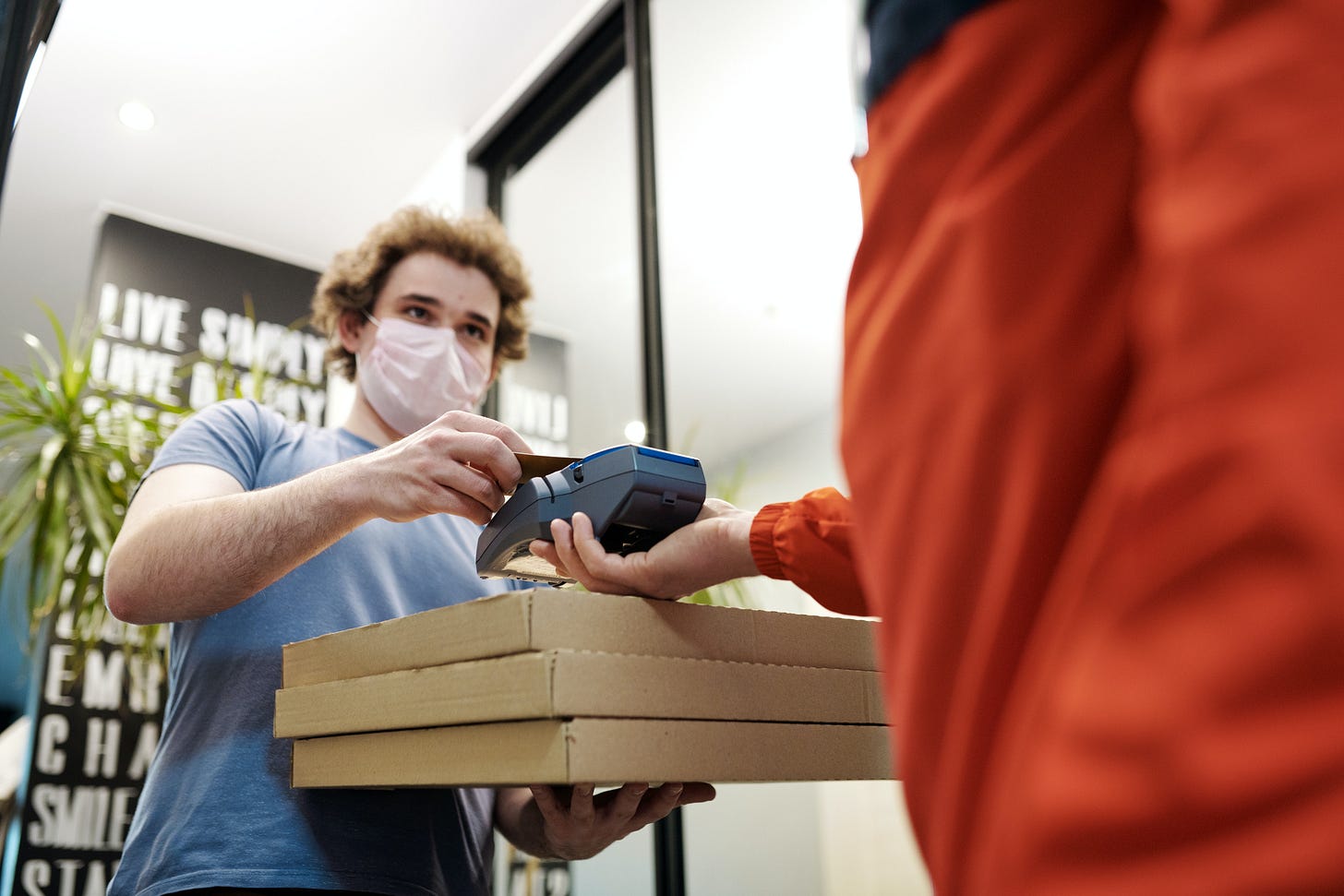
Scanning through a bunch of news and shared articles across various channels, I’ve consolidated some “trends” or shared insights I’ve learned in the month gone by, with my own one-liner commentary on the sides :
Google partnered up with 6 more banks in the US to create a digital banking platform. The idea is to offer digital checking and savings accounts to Google Pay users in the U.S. Interesting to see the kind of financial data Google will have access to, and the kind of social data banks might leverage from Google. Would you have to connect your Google account to your Google-[insert bank name here] co-branded chequing account?
Cred.ai is the Tesla of credit cards, aiming to disrupt the credit card experience. They also have a white unicorn as a gif on their website - cheeky to indicate themselves as unicorns at this early stage! Apparently they'd be offering a heavy metal credit card with no fees, no interest rates and no annual fees. Would this card give me free airport lounge visits & 4x the reward points? Guess we'd need to wait & watch.
Apple has invested into a small company in Montreal called Mobeewave Inc. that enables your mobile phone to be a POS (payment) terminal. Imagine the possibilities of turning your hand held device into a potential POS terminal, capable of receiving payments from any other mobile device, whether you’re a merchant or just an individual consumer?
Scaling through partnerships - it’s incredibly hard to build and scale in FinTech without institutional collaboration. What defines success in building for scale with FinTech startups is often the ability to partner and closely collaborate with traditional financial institutions like banks and payment networks. Visa/Plaid partnership, Intuit and Credit Karma, FinTech unicorn SoFi acquiring Galileo and many more are examples of tech companies collaborating with traditional issuers, processing houses and banks to bring tangible solutions to market.
POS lending with various retailers - US airline JetBlue and Marcus by Goldman Sachs has decided to offer travelers a no-fee, no deposit, fixed-rate installment loan option at the point of sales (POS). This news made me aware of multiple retailers trying to ease friction at the point of sale on a website leading to cart abandonment (especially for large ticket items) and declining revenues, especially in the times of COVID. POS lending as a Service is new to the land of ecommerce with Visa Installment, Klarna, Affirm, Future Pay, Bread among many others who want to solve the ‘last mile’ problem during a digital transaction.
API economy - This was a realization a tad too late, however looking at the websites of Visa and MasterCard, I came to the conclusion that these payment networks, processors & issuers are no longer fintech companies; they’re API companies. Their primary business is to build out APIs solving a particular user challenge, and then license/whitelabel these APIs to their enterprise clients, which have the potential to provide value added capabilities to their end users/customers.
Industry play - Payment networks, Digital Wallets & Payment providers are working towards creating an industry standard for one payment method. The checkout experience would be much simpler and transparent. More on this soon!
BNPL - The Buy Now, Pay Later trend (or POS lending as mentioned before) continues as more and more financial organizations, fintechs & tech companies want to help merchants and retailers drive average order values and conversion, without taking on additional costs. Enabling choice for the customer is another factor in this huge interest towards easy POS installment loans, whereby I as an end user have the control and option to pay where, when and how I like for my purchases online.
Opportunity for fintech/banking usecase in a wearable (watch or otherwise)? - Amazon recently launched HALO, a health and fitness tracking wearable device and it seems to be a strong contender to the iWatches & FitBits of the world. In addition to the general health tracking capabilities of this device, a feature called Tone analyzes your emotional state throughout the day and Body provides a three-dimensional rendering of your body with information about weight and body fat percentage. I can’t help but wonder if there’s a usecase of embedding a financial wellness experience with wearables. Especially with the volatile market fluctuations and COVID stresses, it’d be good to understand how market forces are affecting my health and financial wellbeing, as well as provide me with a quick lowdown of my banking/stock market datapoints directly on my wearable.
Pay with Points - Industry giants such as Amazon & PayPal are shifting towards allowing customers to pay with their reward points (banking credit card or other reward programs), expanding the range of options available to the average consumer for quick access to payment and credit. Point as a Crisis Currency is a quick win to solve the cash-strapped challenges facing customers in today’s economy. This concept is not new, however it’s expanding and becoming inclusive across retailers, issuer fintechs, merchants and other providers, which is a win-win for the customer.
Did you like this snapshot of the underlying shifts & currents brewing in the Payment, Cards & Innovation space? If you found this useful, feel free to subscribe to my newsletter!



